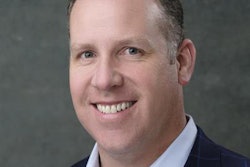
The U.S. Congress passed the Corporate Transparency Act (CTA) as part of the 2021 National Defense Authorization Act on January 1. The CTA requires most U.S. private companies, or entities registered to do business in the U.S., to report beneficial ownership data to the Financial Crimes Enforcement Network (FinCEN). The intent of the statute is to spotlight individuals and companies that use shell companies for unlawful actions.
Legitimate private companies should be aware of these new federal laws and comply with appropriate reporting. Failure to submit required data could result in significant civil and criminal penalties.
Reporting will begin once the secretary of the treasury has adopted regulations detailing how the CTA will be implemented, which is mandated no later than January 1, 2022. Some companies are exempt from reporting mandates, including the following:
- Publicly traded companies
- Banks, insurance companies, investment companies registered with the Securities and Exchange Commission, and credit unions
- Public accounting firms
- Companies that employ more than 20 people, filed a tax return reporting gross receipts of more than $5 million, and have a physical presence in the U.S.
- Nonprofit organizations
- Any entity designated by secretary of the treasury to be exempt
These exemptions will automatically exclude many dental service organizations (DSOs) from statutory reporting. Other DSOs may elect to restructure their business design for exemption qualification. All DSO directors would be wise to review their firm's standing under these federal reporting laws with expert legal counsel.
 Dr. Michael W. Davis.
Dr. Michael W. Davis.Hypothetically, an individual dental practice that is held by a DSO and generated less than $5 million in production may require reporting. Companies will also be required to submit annual reports to reflect any changes to their identifying information.
A key term in the statute relates to beneficial ownership. A "beneficial owner" is defined as an individual who, directly or indirectly, through any contract, arrangement, understanding, relationship, or otherwise, owns or controls 25% or more of the ownership interest of an entity, or exercises "substantial control" over an entity. Please note that under most state and federal statutes, individuals and corporations are treated similarly.
The intent of the CTA was to expose illegal business transactions, such as money laundering and tax fraud, through shell companies. That might also include DSOs violating state and federal false claims acts via consumer fraud, Medicaid fraud, and efforts to circumvent state regulatory corporate practice of medicine.
To gain better understanding of the issues, attorneys Ed Marquette, an expert in dental law, and Lisa Sarver, an expert in the corporate application of the CTA, were interviewed. Both work for the national law firm of Kutak Rock.
How will new laws under the CTA affect the DSO industry?
Marquette: A number of DSOs will doubtless be able to fit under one of the exemptions; however, smaller DSOs and startup DSOs will find it more challenging to fit within one of the exemptions.
Sarver: Many entities will be able to rely on one of the exemptions to take the position that they are not a reporting company, particularly the "operating company" and "subsidiary" exemptions which have very broad applicability.
If the DSO is not a reporting company because of an exemption, a dental practice entity may seek to avoid being a reporting company by virtue of the subsidiary exemption. However, it is not clear that the subsidiary exemption will apply, because that appears to require ownership or control over the equity interests of the dental practice entity, not just control over the entity's operations. As a result, the dental practice entity may need to qualify for a separate exemption, even if the DSO is exempt.
How will the concept of a beneficial owner come into play?
Marquette: The statute generally defines "beneficial owner" in terms of control, and the typical management agreement provisions, though disclaiming control over professional clinical judgment, may very well satisfy the "control" requirements of the statute, given that the management companies typically control billing, collections, payment, bank accounts, schedules, office administration, information technology, human relations, and accounting.
Sarver: The concept of a beneficial owner under the CTA is broader than true ownership -- it not only covers those with a 25% ownership interest but also those who exercise substantial control over the entity.
Unfortunately, "substantial control" has not yet been defined. So until the Department of the Treasury issues its regulations, we cannot definitively say what substantial control means. However, we do know that an individual or entity who holds no equity interest in the entity may still be a beneficial owner.
Do DSOs face any potential negative consequences from the mandated reporting?
Marquette: For DSOs that cannot fit within an exception, they will face a dilemma. If, to avoid the substantial adverse consequences of violating the CTA, they file a statement of beneficial ownership with FinCEN, they will in many states be admitting an "ownership interest" and/or "substantial control" that may violate the applicable dental practice act. This is particularly true where state statutes provide that no person other than a licensed dentist may hold an ownership interest (of any kind) in a dental practice entity.
Sarver: We are expecting the regulations to provide greater clarity as to how the requirements of the CTA will be applied when an entity may arguably control -- but not own -- another entity.
Dr. Michael W. Davis practices general dentistry in Santa Fe, NM. He assists as an expert witness in dental fraud and malpractice legal cases. He currently chairs the Santa Fe District Dental Society Peer Review Committee and serves as a state dental association member to its house of delegates. He extensively writes and lectures on related matters. He can be reached at [email protected] or SmilesofSantaFe.com.
The comments and observations expressed herein do not necessarily reflect the opinions of DrBicuspid.com, nor should they be construed as an endorsement or admonishment of any particular idea, vendor, or organization.



















